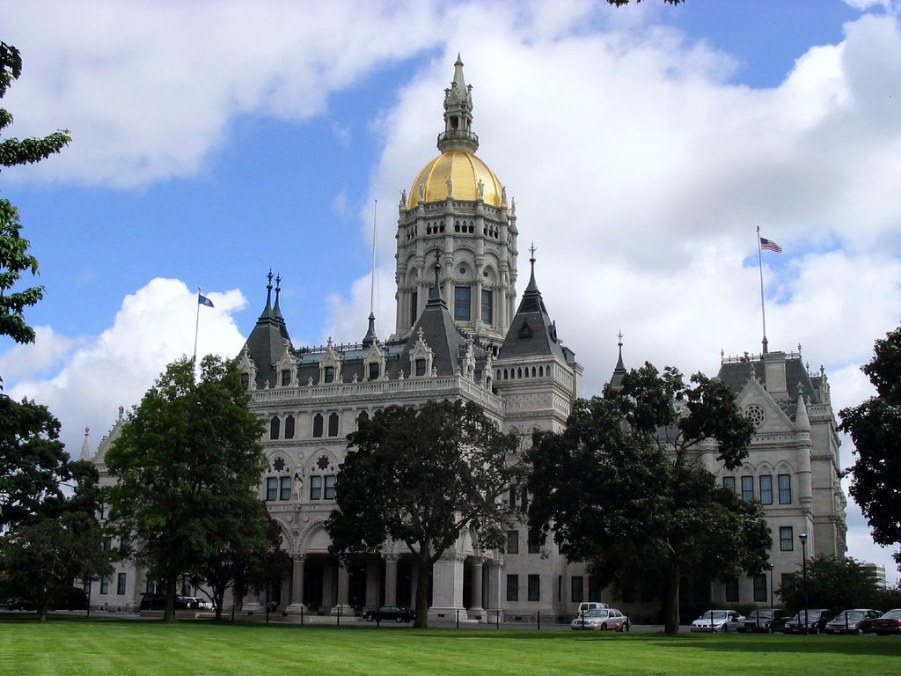
The State Capitol, Hartford
– Library of Congress, Prints and Photographs Division
From the 1600s on, Connecticut laws have shaped the daily lives of its residents. Early mandates include the Code of 1650, the first compilation of the colony’s laws, and Sabbath-related ordinances, later known as Blue Laws. From the mundane to the momentous, Connecticut regulations have forbidden travelers to ride a ferry without a ferryman, abolished slavery in 1848, and penalized makers of defective goods since the 1982 passage of the nation’s first Lemon law. The state has also produced lawyers: the Litchfield Law School opened in 1773, Yale’s in 1834, and the University of Connecticut’s in 1921. Today, state government continues to enact laws to protect and benefit Connecticut’s residents.
Featured
The Long, Ambiguous History of Connecticut’s Blue Laws
Connecticut's blue laws are a series of laws based on puritan values that restrict or ban certain "morally questionable" activities on days of worship or rest. …[more]






